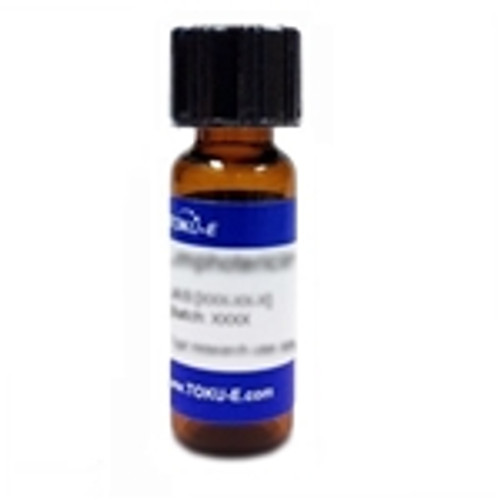Bromamphenicol is a semi-synthetic chloramphenicol analogue first reported in 1950, in which the dichloroacetamide is replaced with dibromoacetamide. Bromamphenicol possesses weak antibiotic activity. Comparative crystallography with chloramphenicol helped defined the SARs of the acetamide binding region on the ribosome. More recently, this relationship was used to demonstrate that chloramphenicol binding to DraE virulence factors in Gram negative bacteria was independent of chloramphenicol binding site on the ribosome.
Bromamphenicol is soluble in ethanol, methanol, DMF and DMSO.
Bromamphenicol is soluble in ethanol, methanol, DMF and DMSO.
| Molecular Formula | C11H12Br2N2O5 |
| References | X-Ray analysis of some antibiotic substances. Dunitz J.D. & Leonard J.E. J. Am. Chem. Soc. 1950, 72, 4276. The crystal structure of chloramphenicol and bromamphenicol. Dunitz J.D. J. Am. Chem. Soc. 1952, 74, 995. A structural study of the interaction between the Dr haemagglutinin DraE and derivatives of chloramphenicol. Pettigrew D.M. et al. Acta Cryst. Set. D 2009, 65, 513. |



